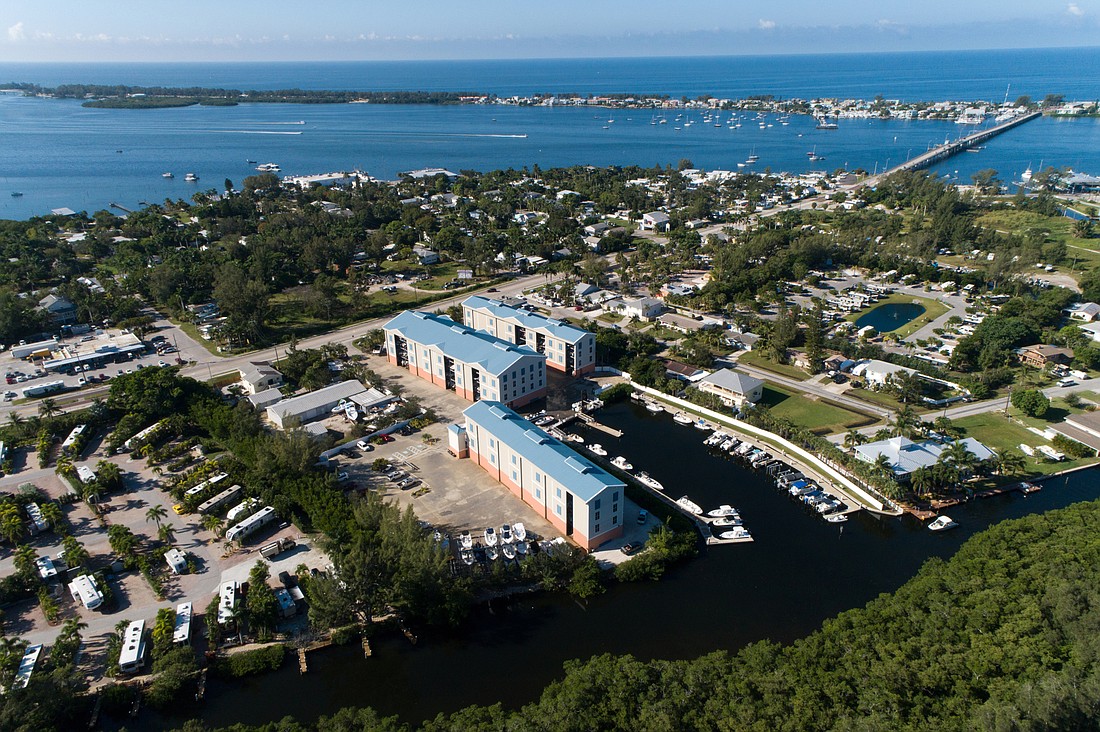- December 25, 2024
-
-
Loading

Loading

Andrew Cantor was a CPA turned golf course buyer’s consultant and part-time sailing instructor in 2004 when he happened on the idea of brokering marina deals.
The more he looked at boat storage facilities of all stripes, in fact, the more similarities he saw they had with golf courses.
Both have a real estate component, both have operating businesses associated with them and both offer the ability to leverage amenities and increase cash flow for investors.
Best of all, perhaps, Cantor found that marinas are often such specialized properties that few brokers bother, and even fewer understand the particular nuances of the business that make selling them difficult.
“It’s still real estate, but it’s a hybrid real estate,” says Cantor, Managing Director and founder of commercial real estate brokerage firm Colliers Internationals’ Tampa-based Leisure Property Advisors (LPA) team.
“They trade like real estate, in large part because all marinas have an uplands component to them. And they’re also heavily weighted to the hospitality industry, and there’s a storage element and ancillary activities like restaurants, repair shops, rental facilities that are similar to retail.”
A decade after the first began shifting his focus from links to docks, Cantor met Matthew Putnam and Daniel Grovatt at commercial brokerage Marcus & Millichap, where they, too, were exploring golf course and related sales.
Putnam had gotten into commercial real estate through condo hotel management, and Grovatt from the Pittsburgh Pirates baseball team after an injury derailed a career in professional sports.
At the beginning of this year, the trio was recruited by Colliers, a firm with offices in 68 countries and dedicated marina teams in both the United Kingdom and Canada, as well as in the U.S.
“They have the only global marine platform, and that was very appealing to us, because more and more of this business is going to be international moving forward,” says Putnam, who is also a Colliers' managing director.
At the same time, the group says Colliers’ culture allows them to collaborate with more traditional brokerage practices in a more seamless manner.
Cantor recalls a sale involving a 500-slip marina in Kent Island, Md., which also contained a tract for 211 residential lots. Combining forces with the firm’s Southeast land team, the advisors garnered nine offers for the property.
“The way everyone worked together was just phenomenal,” Cantor says.
Kate Tarokh, who came to Colliers in 2017 from an Atlanta law firm where she focused on business development, joined the team as its client services coordinator to round out the LPA’s roster, for now.
The year since the LPA team fused together at Colliers has been eye-opening.
“We end up spending a lot of our time educating sellers on their options, and buyers — be it husband-and-wife teams to institutions — on the marina business and how each marina is different,” Cantor says.
“There’s really a lack of sophisticated information out there,” Grovatt adds.
“There’s no Zillow for the marina business, that’s for sure,” Putnam says. “But that’s what we bring to the table.”
“There’s no Zillow for the marina business, that’s for sure. But that’s what we bring to the table.” — Matthew Putnam, managing director, Colliers International
Despite their relatively short stint in the marina space, the LPA team has produced impressive results, and managed to build key relationships that could generate business for years to come.
In the past two years, for instance, the team together has sold 20 properties, including Tampa Harbour Marina.
With each transaction, the LPA team says it gains more knowledge about the industry and discovers ways to unlock net operating income.
“That’s the particular value proposition we bring to sellers,” Cantor says. “We’re always looking for ways to increase (net operating income), and quite often we find them.”
The team currently has 14 separate deals working in eight states, including One Particular Harbour on Anna Marie Island and the Bradenton Boat Club, both in Manatee County.
“They’ve convinced me that they’re professionals and I think they know marinas as well as anyone I have ever talked to,” says Jeremiah Supple, owner of the Bradenton Boat Club, a 4.65-acre facility capable of storing up to 344 boats inside and outside.
“Just as importantly to me, they’ve always been forthright with me and I have a good feeling about their integrity,” says Supple, who has owned the facility for nearly a decade.
The LPA team plans to take bids on the Bradenton property through the middle of next month, with the aim of completing a sale by the end of the first quarter of next year.
The team has the same timeline for the Minto Communities-owned One Particular Harbour property, which is adjacent to a new Margaritaville-themed hotel under development on the island.
And while supply constraints in the Sunshine State and future boat sales tied to economic prosperity or the lack thereof could eventually impact the team’s business, Cantor says redevelopments will “be a trend that we see continuing going forward.”
That’s especially true because the size of many pleasure vessels are getting bigger, as high net worth consumers have more disposable income to spend on boats and other leisure activities.
The trend is already influencing some owners and is a factor in three new team listings in Florida, New York and New England.
“We see the marina industry undergoing a similar consolidation as occurred in the self-storage business, especially for trophy assets,” says Putnam. “And in that regard, Florida properties are highly sought after, because they tend to be stable investments with good cash flow.
“And likewise, there’s an ongoing migration in America to coastal communities, so we see the trend lines continuing,” he adds. “There are still a lot of people looking at buying waterfront property, and as the number of people who come here increases, the demand will outweigh supply.”